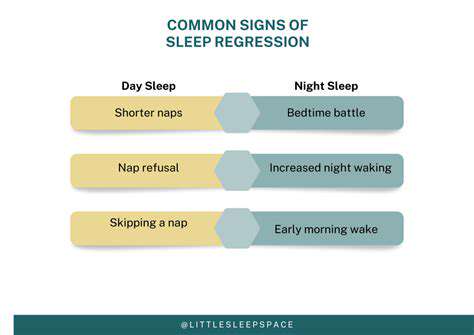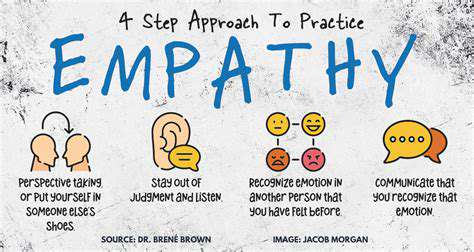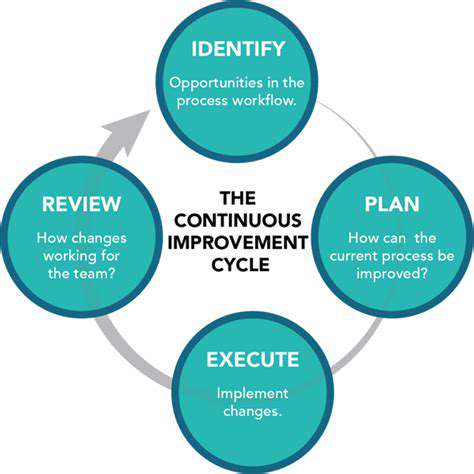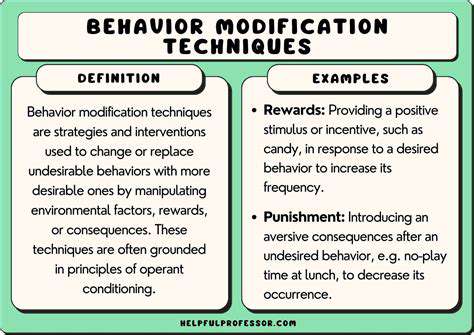HTML
Styling
Child Development
Sleep Patterns
Sleep Deprivation
Health
CSS
تفسير التراجعات في النوم: التنقل خلال التغيرات في أنماط النوم
مراحل النمو
غالبًا ما تتزامن تراجعات النوم مع قفزات نمو كبيرة في حياة الطفل. هذه المراحل، مثل تعلم الزحف، والمشي، أو الكلام، تتطلب طاقة ذهنية وجسدية كبيرة. الزيادة في
تعرف على علامات تراجع النوم:

تعرف على العلامات الجسدية
قد تُظهر العلامات الجسدية لحرمان النوم...
Read more about تفسير التراجعات في النوم: التنقل خلال التغيرات في أنماط النوم
استكشف الرابط الأساسي بين الطبيعة والرفاه العقلي في التعليم ما قبل المدرسة. اكتشف كيف يعزز التعرض للبيئات الطبيعية الصحة العاطفية والإبداع والتطور المعرفي للأطفال. تتناول مقالتي فوائد دمج البيئات التعليمية المستوحاة من الطبيعة، وتشجيع الاستكشاف المستقل، ومعالجة الفجوة بين الحضر والطبيعة. تعرف على كيفية تصميم المساحات الخضراء الشاملة والأثر الإيجابي للتشجير الحضري على نمو الأطفال. زود المعلمين والعائلات باستراتيجيات لتعزيز الاستقلال وتقدير البيئة بين الأطفال في مرحلة ما قبل المدرسة. انضم إلينا في تعزيز الرفاه العقلي ورعاية ارتباط دائم بالطبيعة لدى المتعلمين الشباب!
Jan 18, 2025
تجارب تعلم جذابة مع الأشكال. استكشف أهمية الأنشطة العملية، وتكامل التكنولوجيا، وسرد القصص، والفن، والتطبيقات الحياتية في تعليم الأشكال للأطفال. يُبرز هذا الدليل الشامل طرقاً إبداعية لجذب المتعلمين الصغار من خلال صيد الأشكال التفاعلي، والأدوات الرقمية، وأسابيع الأشكال المواضيعية. اكتشف كيف يمكن أن تعزز أنشطة مثل تصنيف الأشكال، والفنون والحرف اليدوية، والألعاب التعاونية، التنمية الإدراكية، ومهارات حل المشكلات، وحب التعلم لدى الأطفال. انضم إلينا لإنشاء تجارب تعليمية لا تُنسى تربط بين المفاهيم الهندسية والحياة اليومية وتلهم الإبداع في فصلك الدراسي!
Jan 28, 2025
المؤشرات الرئيسية للضغط العاطفي لدى الأطفال فهم الضغط العاطفي لدى الأطفال أمر بالغ الأهمية لضمان رفاههم. غالبًا ما تكون التغيرات في السلوك بمثابة مؤشرات هامة للضغوط العاطفية الكامنة. يستكشف هذا الدليل كيفية تعرف الآباء ومقدمي الرعاية على هذه التغيرات، ودعم الأطفال بشكل فعال خلال الأوقات الصعبة. التعرف على التغيرات السلوكية يمكن أن تشير التغيرات السلوكية مثل الانسحاب من التفاعلات الاجتماعية أو التهيج المفاجئ إلى اضطرابات عاطفية. قد يصبح الطفل الذي كان يزدهر في البيئات الاجتماعية أكثر عزلة، مفضلًا الوحدة. تستحق هذه التغيرات المتابعة، حيث يمكن أن تؤدي إلى مشكلات عاطفية أكثر جدية إذا تم تجاهلها. العلامات الشائعة للضيق- التهيج والعدوان: يمكن أن تشير الزيادة في الإحباط إلى صراعات عاطفية. قد تكون الانفجارات المفاجئة وسيلة الطفل للتعبير عن ضيقه. - تراجع الأداء الأكاديمي: يمكن أن تشير التغيرات في الأداء المدرسي إلى تحديات عاطفية أوسع، مما يتطلب تواصلًا نشطًا بين المعلمين والآباء. - الأعراض الجسدية: الشكاوى من الصداع أو آلام البطن أو التعب يمكن أن تكشف عن القلق والضغط. غالبًا ما تعبر الأطفال عن التحديات العاطفية من خلال الشكاوى الجسدية، مما يبرز الحاجة إلى رعاية حساسة. الأعراض الجسدية كمؤشرات ترتبط الأعراض الجسدية غالبًا بالصحة العاطفية. يمكن أن ترتبط حالات مثل الأرق، الكوابيس أو التعب غير المبرر بالضغط العاطفي. عندما تواجه الأطفال ضغطاً مزمناً، قد تتأثر صحتهم البدنية، مما يؤدي إلى مشاكل صحية محتملة على المدى الطويل إذا لم يتم تناولها. استراتيجيات للآباء الانخراط في حوارات مفتوحة مع الأطفال حول مشاعرهم أمر حيوي للصحة العاطفية. من المهم وضع روتين منظم ونمذجة آليات التكيف الصحية لتخفيف الضغط بشكل كبير. علاوة على ذلك، فإن التحقق من مشاعرهم ومشاركتهم في حل المشكلات يعزز القدرة على التكيف. متى تطلب المساعدة المهنية قد يكون التعرف على الوقت المناسب لطلب المساعدة أمرًا شاقًا. إذا تفاقمت المشكلات السلوكية أو استمرت الأعراض الجسدية، يُنصح باستشارة طبيب أطفال أو متخصص في الصحة النفسية. يمكن أن تساعد التدخلات المبكرة في تخفيف المضاعفات وتعزيز مسارات تطوير أكثر صحة. دور المؤسسات التعليمية غالبًا ما تكون المدارس هي المراقبين الأوائل للتغيرات العاطفية لدى الأطفال. يمكن للمربين المدربين على التعرف على علامات الضيق العمل مع الآباء لضمان وجود بيئة داعمة لكل طفل. يمكن أن يعزز تنفيذ برامج محو الأمية العاطفية أيضًا قدرة الأطفال على التعبير عن احتياجاتهم. الخاتمة يمكن أن يكون اليقظة بشأن التغيرات السلوكية والعاطفية لدى الأطفال تأثير كبير على صحتهم العامة. يلعب الآباء ومقدمو الرعاية دورًا محوريًا في خلق بيئات داعمة، وتشجيع التعبير من خلال الفن واللعب، وتيسير التواصل المفتوح. من خلال التعرف على العلامات وتنفيذ استراتيجيات استباقية، يمكن لمقدمي الرعاية مساعدة الأطفال في التنقل في مشاعرهم بكفاءة. لمزيد من الأفكار حول تعزيز الرفاهية العاطفية للأطفال، استكشف مواردنا حول استراتيجيات التربية ووعي الصحة النفسية.
Apr 05, 2025
إظهار ردود الفعل المناسبة لمختلف المواقف. - تشجيع المناقشات المفتوحة: خلق مساحة للأطفال للحديث عن مشاعرهم. - الاستفادة من الموارد: استخدام كتب وألعاب تتناسب مع أعمارهم وتعزز التعلم العاطفي. مسؤولية المدرسةيمكن للمؤسسات التعليمية تعزيز الذكاء العاطفي لدى الطلاب من خلال برامج التعلم الاجتماعي والعاطفي (SEL). المدارس التي تشمل الذكاء العاطفي في مناهجها تفيد بأن التفاعل بين الطلاب أعلى وتقلصت المشاكل السلوكية. يمكن أن يدعم تدريب المعلمين في التعرف على الديناميات العاطفية النمو العاطفي للطلاب بشكل أكبر، مما يؤدي في النهاية إلى تحقيق نتائج أكاديمية أفضل. الفوائد طويلة الأمد للذكاء العاطفيالاستثمار في الذكاء العاطفي خلال الطفولة يعود بالفائدة في مرحلة البلوغ، حيث يستمتع الأفراد بعلاقات أفضل، ورضا وظيفي أعلى، وخصائص قيادية محسّنة. تقترح الدراسات أن الذكاء العاطفي هو مؤشر أكثر دقة للنجاح في مكان العمل من معدل الذكاء التقليدي، مما يبرز الحاجة إلى إعطاء الأولوية لتطوير الذكاء العاطفي في وقت مبكر من الحياة. تشجيع التعاطف والمهارات الاجتماعيةالتعاطف هو ركيزة للتفاعلات الاجتماعية ويمكن تنميته من خلال المراقبة واللعب. توفر الأنشطة مثل الرياضات الجماعية والألعاب التعاونية سيناريوهات واقعية للأطفال لممارسة التعاطف والمهارات الاجتماعية. يجب على الآباء تقديم التوجيه ونماذج يحتذى بها – احتضان التعاطف والفهم – وتشجيع المناقشات حول المشاعر لتعميق فهم الأطفال. الخلاصةالتركيز على الذكاء العاطفي في مرحلة الطفولة أمر بالغ الأهمية لتنمية أفراد متكاملين يمكنهم مواجهة تحديات الحياة بفعالية. من خلال تعزيز الذكاء العاطفي في المنزل والمدارس، يمكننا تجهيز الأطفال بمهارات أساسية للرفاهية العاطفية والنجاح. ستؤدي الاستثمار في نموهم العاطفي اليوم إلى مجتمع أكثر تعاطفًا ووعيًا عاطفيًا غدًا.
Apr 13, 2025
تدريس الأطفال كيفية تحديد وإدارة المشاعر القوية
Apr 30, 2025
تمكين مهارات حل المشكلات للتحديات الحياتية الواقعية
May 08, 2025
هيكلة أنظمة المكافآت لتعزيز السلوك الإيجابي
May 08, 2025
السلوكيات المُتَحدِّية: دليل للأبوين لفهم وردّ الفعل
Jun 07, 2025
تدريس التعاطف: مساعدة الأطفال على فهم مشاعر الآخرين
Jun 09, 2025
بناء الثقة من خلال اللعب: تمكين المتعلمين الشباب
Jun 09, 2025











